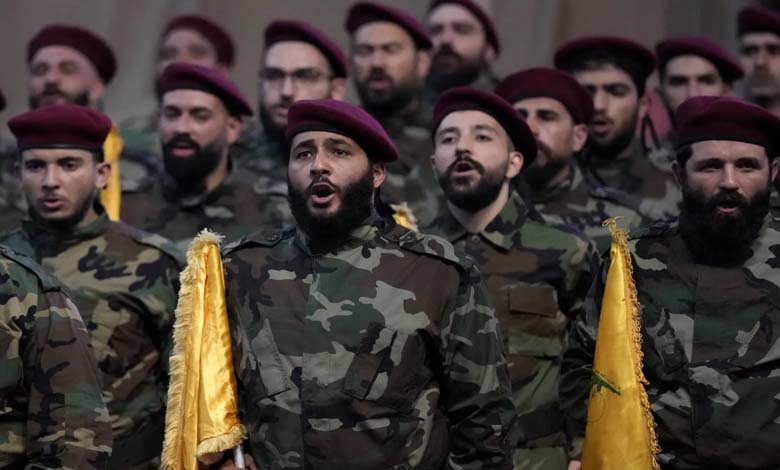Hezbollah threatens Lebanon with a Karbala-style battle to keep its weapons

Hezbollah’s Deputy Secretary-General, Naim Qassem, on Friday accused the Lebanese government of “handing over” the country to Israel by deciding to strip the group of its weapons. He warned that such a move could trigger a “civil war” and threatened what he described as a “Karbala-style battle” in a hardline speech likely to fuel further internal tensions in a country still grappling with the aftermath of the recent war.
-
Hezbollah Faces a Silent Collapse: Missing Leadership, Besieged Weapons
-
Beirut Port Explosion Anniversary: Justice Moves Forward Despite Hezbollah’s Obstruction
In early August, the government decided to disarm Hezbollah and tasked the army with drawing up a plan to complete the process by the end of the year. The decision came amid U.S. pressure on the Lebanese authorities and concerns that Israel might carry out threats of a new military campaign, just months after a major confrontation that dealt heavy blows to the group.
The Iran-backed Hezbollah had already firmly rejected the decision. Qassem’s remarks came two days after his meeting in Beirut with Iran’s Supreme National Security Council Secretary, Ali Larijani, signalling unprecedented Iranian support for Hezbollah’s stance — a position the Lebanese authorities reject as interference in their internal affairs.
-
The Lebanese Government Tightens Financial Pressure on Hezbollah by Banning Dealings with Al-Qard Al-Hassan
-
U.S. Patience Wears Thin as Hezbollah Disarmament Stalls
Lebanese President Joseph Aoun made it clear during his meeting with Larijani that Lebanon opposes any foreign interference, responding to recent Iranian statements objecting to the government’s plan to dismantle Hezbollah’s arsenal — an arsenal financed and supplied by Tehran.
In a televised address marking the Arbaeen of Imam Hussein, Qassem declared: “The government’s role is to ensure stability and rebuild Lebanon, not to hand the country over to an insatiable Israeli aggressor or an American tyrant whose greed knows no bounds. Yet this government is carrying out the American-Israeli order to end the resistance, even if it leads to civil war and internal strife.”
-
Hezbollah resists internal and external pressure to disarm
-
Israel Warns Naim Qassem: There Will Be No Hezbollah in That Case
He stressed: “The resistance will not surrender its weapons. The aggression continues, the occupation remains, and we will, if necessary, wage a Karbala-style battle against this American-Israeli project, no matter the cost. We are confident we will prevail in this battle.”
Qassem also warned that street protests against disarmament “could reach the U.S. embassy” in Beirut. He said: “We considered taking to the streets, but the leaderships of Hezbollah and the Amal Movement agreed to delay such action to allow for dialogue before a confrontation that no one wants. If the time comes, demonstrations will sweep across Lebanon and reach the U.S. embassy, to defend the truth and assert our presence.”
-
Lebanon Dismantles Hezbollah Network with Israeli Support
-
Religious Chant Leader Accused of Spying for Israel and Bringing Down Hezbollah Officials
The government’s decision to strip Hezbollah of its weapons is unprecedented since the end of the Lebanese Civil War (1975-1990), when all other militias surrendered their arms to the state, except Hezbollah, which kept them under the banner of “resistance against Israel.”
Until recently, Hezbollah was Lebanon’s most powerful political and military force, enjoying support from both Damascus and Tehran. However, the balance of power shifted with the formation of the current government: the group emerged weakened from last year’s war with Israel, a nearly year-long conflict that claimed the lives of many of its commanders and destroyed a significant portion of its arsenal.
-
Hezbollah’s Violations Rekindle Tensions at the Syrian-Lebanese Border
-
Disarming Hezbollah is closer than Ever
Tehran itself suffered a major setback following a 12-day war with Israel in June, and the fall of Bashar al-Assad’s regime in Syria late last year further diminished its influence.
Israel’s offensive on Lebanon, launched on 8 October 2023, escalated into a full-scale war on 23 September 2024, killing more than 4,000 people and injuring around 17,000.
A ceasefire came into effect on 27 November 2024, but Israel violated it more than 3,000 times, killing 281 people and injuring 591 others, according to official data. Defying the ceasefire agreement, the Israeli army has conducted only a partial withdrawal from southern Lebanon and continues to occupy five hills it seized during the last war.
-
The future of Hezbollah’s weapons is open for discussion: Under conditions
-
Hamas Hezbollah and Houthis: Netanyahu Unveils His Vision to End the Gaza War












